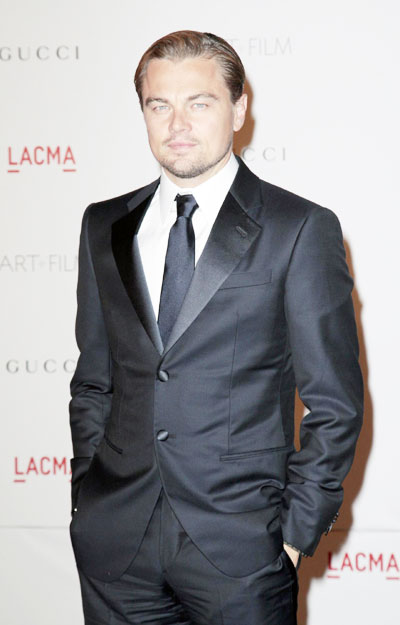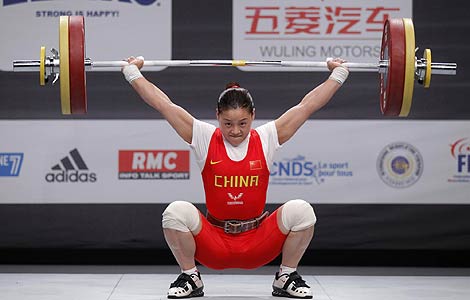5 best Leonardo DiCaprio performances
Updated: 2011-11-11 10:46
(Agencies)
|
|||||||||
 |
|
Actor Leonardo DiCaprio arrives at the Los Angeles County Museum of Art (LACMA) Art + Film Gala in Los Angeles, California November 5, 2011.[Photo/Agencies] |
DiCaprio portrays this enigmatic, power-hungry figure from his rise through the bureau to his final breaths decades later (with the help of some old-man makeup that isn't entirely convincing). It's yet another example of his great range and intelligence in the projects he chooses, and it gives us a chance to look back at his best performances:
— "Catch Me If You Can" (2002): DiCaprio is at his charismatic best here as real-life con man Frank Abagnale Jr., playing a stylish game of cat-and-mouse with Tom Hanks as the FBI agent on his tail. Steven Spielberg's comic caper is one of his most playful films, and one of his best, and much of its joy comes from DiCaprio's central performance. He sweet-talks his way into or out of any tricky situation with those boyish good looks of his, but it's clear there's always something sharper and craftier beneath the surface. He makes Abagnale seem like he's always in command — even when he's on the verge of getting caught — and he makes you want to see him get away with those ill-gotten millions.
— "What's Eating Gilbert Grape?" (1993): DiCaprio earned the first of his three Oscar nominations (the others were for "The Aviator" and "Blood Diamond") for playing Arnie Grape, a mentally disabled 17-year-old living in small-town Iowa. His older brother, Gilbert (Johnny Depp), cares for him and the rest of the family, including their 500-pound mother, and that's pretty much all the future would seem to hold for him. Lasse Hallstrom's film can be a bit too sentimental and it's jammed with quirkiness, but DiCaprio's performance cuts through it all. His directness counter-balances the whimsy. There's a rawness to his tics, to his very presence, that's riveting.
— "Inception" (2010): In Christopher Nolan's beautiful, ambitious machine, DiCaprio is an essential cog: master "dream thief" Dom Cobb, who assembles his crew and goes in for that tried-and-true one last job. He's confidently in control as he deftly puts all the pieces together and keeps tracks of the various geniuses and eccentrics on his team, but he also infuses the character with vulnerability to complement his drive. Wistful memories of his wife and two children provide the necessary heart to balance out the intense braininess of the picture, some softness to lighten the substantial heft of this demanding intellectual exercise.
— "The Departed" (2006): In Martin Scorsese's best-picture winner (his third film with the director, following "Gangs of New York" and "The Aviator"), DiCaprio plays a Massachusetts State Police officer who goes undercover to take down a crime boss. He and Matt Damon, as the crime boss' protege who's infiltrated the state police, are two sides of the same coin — and it's a nice touch that the actors physically resemble each other with those crystal blue eyes and a look that can either be considered boyish or fiendish, depending on your perspective. DiCaprio is essentially playing two separate parts throughout the film — he's feeling the tug of his conflicting allegiances — and his inner torment is palpable.
— "The Basketball Diaries" (1995): DiCaprio is thrilling as Jim Carroll, the late New York poet and musician who chronicled his teenage descent into heroin addiction in his memoir of the same name. He shows great range within a single performance, between the physicality of the athleticism and violence required of him and the emotional depths he plumbs at Carroll's lowest moments. This is a great example of how his babyish features and lanky frame can seem alternately wholesome and dangerous. This performance and his work in "Gilbert Grape" provided an exciting, early glimpse of the fearless actor he would become.











